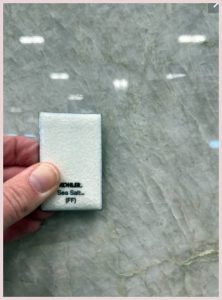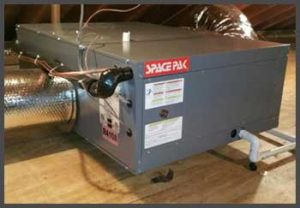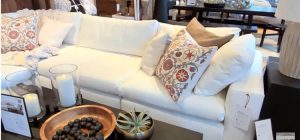Home is where our heart is, and the flooring under our feet plays a crucial role in making that space comfortable and inviting. Enter Chesapeake Vinyl Flooring – a popular choice for many homeowners.
But how does it stack up against the rest? Let’s dig in.
The Pros of Chesapeake Vinyl Flooring
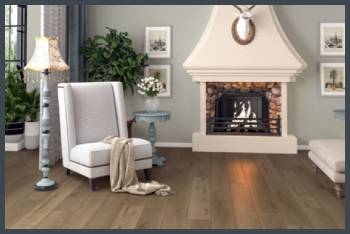
- Durability That Impresses
A standout feature of Chesapeake Vinyl Flooring is its durability. It’s designed to resist scratches, stains, and dents, making it a reliable option for high-traffic areas like kitchens and hallways. In fact, many users have reported that their floors still look new even after years of use.
- Aesthetic Appeal
Chesapeake isn’t just about resilience, though. It offers a range of designs that replicate the beauty of natural wood and stone. The variety of colors, patterns, and textures is truly remarkable, allowing homeowners to tailor their flooring to their unique taste.
- Water Resistance
One of the major pros of vinyl flooring is its water resistance, and Chesapeake doesn’t disappoint. This makes it a good choice for areas like bathrooms and basements where dampness can be a concern.
- Easy Installation and Maintenance
Chesapeake Vinyl Flooring wins points for its ease of installation. Whether you’re a DIY enthusiast or prefer professional help, the process is relatively straightforward. Furthermore, maintenance is a breeze – just a simple sweep and mop keep the floors shining.
Read More: About Happy Feet Loose Lay Flooring
The Cons of Chesapeake Vinyl Flooring
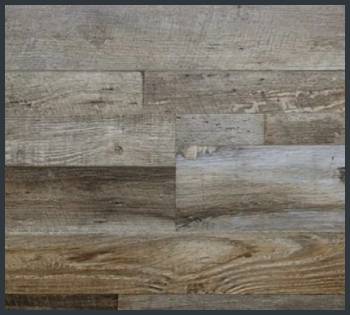
No product is perfect, and Chesapeake Vinyl Flooring is no exception. It’s important to consider these drawbacks before making your decision.
- Lesser Environmental Friendliness
Vinyl flooring, in general, isn’t as eco-friendly as other flooring options like bamboo or cork. While Chesapeake strives to adhere to environmental standards, the manufacturing process still includes synthetic materials.
- Potential Fading Over Time
Some users have reported that their Chesapeake Vinyl Flooring faded slightly after prolonged exposure to direct sunlight. This is something to consider if your space gets a lot of natural light.
- Limited Longevity Compared to Hardwood
While Chesapeake Vinyl is durable, it doesn’t quite match up to the longevity of hardwood. It’s worth noting if you’re weighing up the long-term investment of your flooring.
Frequently Asked Questions (FAQs)
Absolutely. Chesapeake flooring has gained a reputation for its durability, aesthetic appeal, and ease of maintenance. However, like all products, it has its pros and cons, which should be taken into account based on your specific needs.
High-quality vinyl flooring typically has a thicker wear layer, is more resistant to damage, and boasts clear, high-resolution imagery. Always check the specifications, and don’t hesitate to ask for a sample to examine up close.
Chesapeake hardwood flooring is manufactured in the United States. This ensures strict quality control and adherence to US standards.
The best hard-wearing vinyl flooring tends to be luxury vinyl plank (LVP) or luxury vinyl tile (LVT). These offer a balance of durability, comfort, and style.
The thickness you need will depend on where you’re installing the flooring. However, a thickness of 12-20 mil is often recommended for residential settings, offering a good balance of comfort and durability.
Both have their advantages. Felt-backed vinyl tends to be cheaper and easier to install, while foam-backed vinyl offers more comfort underfoot and better sound absorption.
Read More: About Plyboo Bamboo Flooring
Chesapeake Vinyl Flooring Vs. Competitors
Given the array of vinyl flooring options available today, it’s worth taking a look at how Chesapeake stacks up against a few of its competitors.
- Armstrong
A well-known name in the flooring industry, Armstrong offers a range of vinyl flooring options. While both brands boast durability and an impressive selection of designs, Armstrong edges ahead in terms of innovation. Their Diamond 10® Technology makes their floors scratch and stain-resistant. However, Chesapeake holds its own with its water resistance and ease of maintenance.
- Mannington
Mannington is another strong competitor, especially appreciated for its realistic textures and designs. While both Chesapeake and Mannington excel in aesthetic appeal, Chesapeake’s range is often more affordable, making it a more budget-friendly option. That said, some customers prefer Mannington’s eco-friendly initiatives.
- Shaw
Shaw is a powerhouse in the flooring industry, and their vinyl flooring is loved for its high-end look and feel. However, Shaw tends to be more expensive than Chesapeake, and while Shaw offers a commercial-grade wear layer on some products, Chesapeake offers a residential-friendly blend of durability and affordability.
The Verdict
In conclusion, Chesapeake Vinyl Flooring delivers a compelling blend of durability, aesthetic appeal, and water resistance, which is why it’s earned a solid reputation in the market. However, no flooring solution is perfect for everyone. It’s essential to consider your specific needs, budget, and the pros and cons of each option before making a decision.
Consider this review a stepping stone on your path to finding the perfect flooring. Happy floor hunting!

